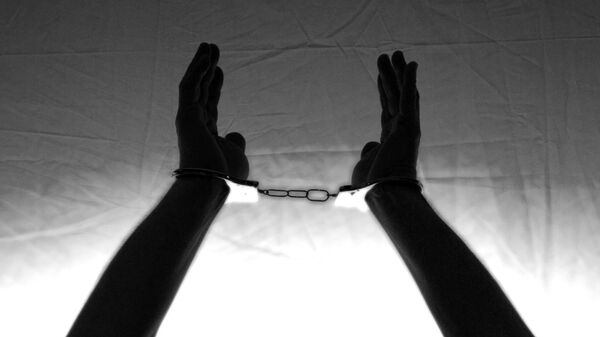The Westminster Public Accounts Committee, chaired by Labour MP Meg Hillier, has said the 41,000 incidents of self-harm in prisons in England and Wales in the past 12 months, a record high in October, was a "damning indictment" of mental health provision in jails.
The committee's report said understaffing and the failure to tackle the easy availability of drugs in prison had contributed to the number of prisoners suffering from mental health issues.
Mental health in prisons: There is "no realistic prospect" of serious issues being properly addressed unless Govt rethinks its approach — our Chair @Meg_HillierMP. Read more https://t.co/M95tp8NmJA #mentalhealth
— Public Accounts Comm (@CommonsPAC) December 13, 2017
'Appalling' Toll
Ms. Hillier said there'd been an "appalling" toll of suicides and self-harm.
"Failing to attend to the mental health needs of inmates can also have devastating effects beyond the prison gates. The evidence is stark but there is no realistic prospect of these serious issues being properly addressed unless the government rethinks its approach. The government must raise its game to understand the problems and we urge it to act promptly on the recommendations set out in our report, said Ms. Hillier.
The full response from @DebatINQUEST pic.twitter.com/Ig39lCk38T
— INQUEST (@INQUEST_ORG) December 13, 2017
Earlier this year, an inquest heard how a prisoner was found hanged in his cell at Woodhill prison in June 2016, shortly after being disciplined instead of given help with his mental health.
'Haunted' Cell
One inmate, Tom Morris, 31, claimed his cell was "haunted", thought creatures were crawling under his skin but he was disciplined after hurling his television from a second floor landing after claiming he heard voices coming from it.
Last month a report by Ofsted showed children in custody at one prison, Oakhill, were facing a "significant shortfall" in mental health provision, with some waiting up to a year for treatment.
Surprised to learn that HMPPS does not distinguish between minor acts of self-harm & suicide attempts-Self harm in prison custody is defined as any act where a prisoner deliberately harms themselves, irrespective of method,intent or severity of any injury. https://t.co/cU4rJ4cW0z pic.twitter.com/QejafObZsT
— Mick Geen (@J4BenGeen) December 12, 2017
The Ministry of Justice, the Probation Service and NHS England have all been forced to make huge cuts since the Conservatives came into power in 2010, originally in a coalition.
The public accounts committee's report found prisoners missed 15 percent of their medical appointments, usually because there were not enough staff to escort them to the hospital wing or to a specialist outside the prison.
Inspector of Prisons makes connection between Holloway closure & rise in self harm & self inflicted deaths (Pg8/9) https://t.co/ThRZ3nfVdS
— Rebecca Roberts (@reberrama) October 30, 2017
"There are long-standing issues with understaffing in prisons and, as the government seeks to address these shortfalls, we will expect it to demonstrate swift progress with plans to provide enhanced mental health training," said the committee's report.
'Shameful Record'
Two-thirds of inmates with acute mental health problems are also waiting far longer than the statutory 14 days to be admitted to a secure hospital like Broadmoor or Rampton.
It's estimated nine out of 10 prisoners have some sort of mental health issue, ranging from mild depression to a severe psychosis.
Drug seizures in prison have risen from 2,500 in 2015 to 10,500 in 2016, with drones increasingly to blame, and this is partly to blame for inmates' poor mental health.
Seizures of Spice, a synthetic drug which can cause severe psychotic episodes, violent hallucinations, nausea and seizures, has jumped from 408 in 2015 to 3,500 in 2016.
The @CommonsPAC have today published a report on mental health in prisons, highlighting the shameful record of self-inflicted deaths and self-harm in prison & shocking admission that Gov has no reliable data on prisoners with Mental Ill Health.https://t.co/URibo45MJT
— INQUEST (@INQUEST_ORG) December 13, 2017
Deborah Coles, director of the charity Inquest, said the government had a "shameful" record on suicide and self-harm.
"Tackling mental health in prisons means a dramatic reduction in the prison population, investment in alternatives and a more therapeutic response to those for whom prisons is the last resort," she said.
The Ministry of Justice said all prisoners were subject to health screening when entering prison and their mental health was closely monitored throughout their time in custody.
"In April this year we introduced new suicide and self-harm reduction training and over 11,000 staff have embarked on the new training. We will continue to work closely with NHS England to improve services in a number of areas, including the process for prisoners who require transfer to secure hospitals," a Ministry spokesperson said.


